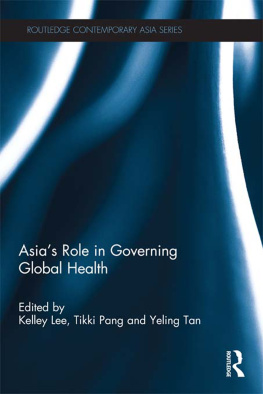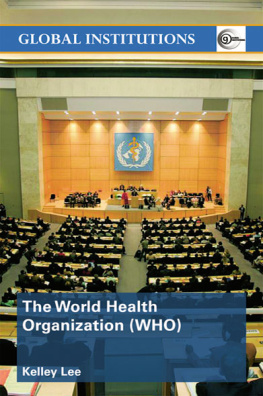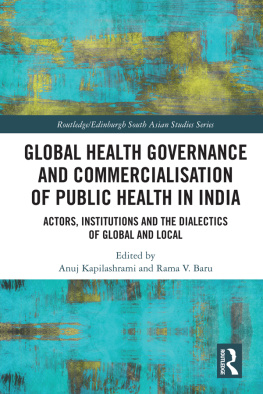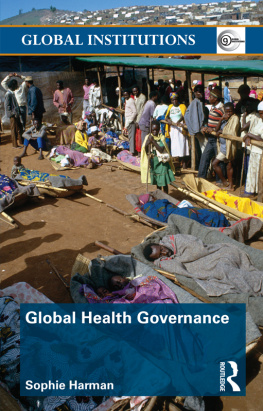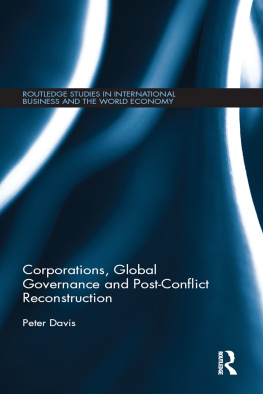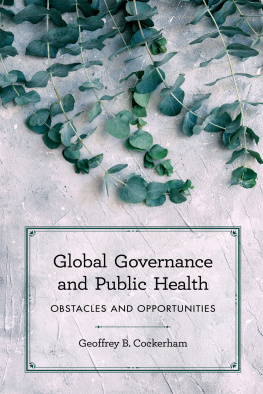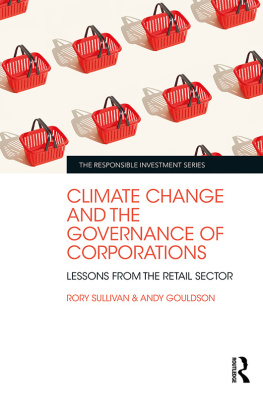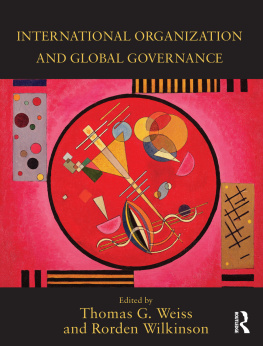Researching Corporations and Global Health Governance
Researching Corporations and Global Health Governance
An Interdisciplinary Guide
Edited by
Kelley Lee and Benjamin Hawkins

London New York
Published by Rowman & Littlefield International Ltd
Unit A, Whitacre Mews, 26-34 Stannary Street, London SE11 4AB
www.rowmaninternational.com
Rowman & Littlefield International Ltd. is an affiliate of Rowman & Littlefield
4501 Forbes Boulevard, Suite 200, Lanham, Maryland 20706, USA
With additional offices in Boulder, New York, Toronto (Canada), and Plymouth (UK)
www.rowman.com
Selection and editorial matter Kelley Lee and Benjamin Hawkins 2017
Copyright in individual chapters is held by the respective chapter authors.
All rights reserved. No part of this book may be reproduced in any form or by any electronic or mechanical means, including information storage and retrieval systems, without written permission from the publisher, except by a reviewer who may quote passages in a review.
British Library Cataloguing in Publication Data
A catalogue record for this book is available from the British Library
ISBN:HB 978-1-7834-8359-4
PB 978-1-7834-8360-0
Library of Congress Cataloging-in-Publication Data is Available
ISBN 978-1-78348-359-4 (cloth: alk. paper)
ISBN 978-1-78348-360-0 (pbk: alk. paper)
ISBN 978-1-78348-361-7 (electronic)

The paper used in this publication meets the minimum requirements of American National Standard for Information SciencesPermanence of Paper for Printed Library Materials, ANSI/NISO Z39.48-1992.
Printed in the United States of America
Contents
Kelley Lee, Benjamin Hawkins and William H. Wiist
Benjamin Hawkins
Jappe Eckhardt
Chris Holden and Kevin Farnsworth
Ross MacKenzie
Raymond Michalowski
Richard G. Parker and Nora J. Kenworthy
Heather Wipfli and Alexandra Mack
Michelle Carnegie
Stephen Kline
Benjamin Hawkins and Rebecca Cassidy
Natalia Carrillo Botero
Michael Stevenson
Brandon Barclay Derman
William H. Wiist
Ross MacKenzie and Chris Holden
Becky Freeman
Kelley Lee
Becky Freeman
Marianne Sullivan and Mark Patrick Taylor
Kelley Lee, Benjamin Hawkins and Diego S. Silva
Natalia Carrillo Botero and Jennifer Fang
Preface
This book is the product of long-standing and recent collaborations brought together and solidified through two workshops held at the Faculty of Health Sciences, Simon Fraser University, atop Burnaby Mountain (outside Vancouver, Canada). We organised the first workshop in 2012 as part of the Research Programme on Global Health Diplomacy, funded by the Rockefeller Foundation and led by Richard Smith and Kelley Lee at the London School of Hygiene and Tropical Medicine. Having examined the role of governments and civil society organisations in the negotiation of global health governance (GHG) arrangements, we recognised the need to better understand the role of for-profit actors, notably corporations. The first workshop brought together a small group of established scholars who generously shared their findings to date, and ideas for developing an expanded research agenda on corporations and GHG. This meeting was followed by a second workshop in 2013, funded by the Canadian Institutes for Health Research (CIHR Planning Grant No. 126667), which, with the participation of additional scholars, graduate students and postdoctoral fellows, significantly expanded this conversation. Following each workshop, we made extensive efforts to write a single paper setting out a definitive research agenda that would move thinking and practice beyond increasingly polarised debates in public health. However, given the diverse range of disciplines represented, theoretical perspectives and business sectors studied, we found that encapsulating the full breadth of the group into one journal article proved impossible to achieve.
This book project arose from this intellectual impasse. Workshop participants agreed that there was a shared concern about the relationship between corporations and emerging forms of GHG. A loosely structured Corporations and Global Health Research Network (COGHREN) was formed. However, like the parable of the blind men feeling an elephant, with each describing a different part of the same animal, the study of corporations has been approached to date from many different perspectives, generating findings within silos, and thus too often unshared across disciplines, geographies and/or sectors. Moreover, we recognised that more research is urgently needed on GHG per se, from a wider variety of disciplinary perspectives, to make sense of this rapidly shifting global governance sphere.
This book, and the accompanying volume, Case Studies on Corporations and Global Health Governance: Impacts, Influence and Accountability, is intended to foster this research need. Our aim is to encourage collaboration and dialogue in three ways. First, we want to bridge disciplinary divides and build greater understanding across discipline-focused and interdisciplinary scholars in such subject areas as anthropology, economics, history, political science, law and sociology, as well as interdisciplinary fields such as business studies, communications, development studies, international relations, public health and policy studies. Our goal is not simply to speak across disciplinary boundaries but to build understanding of how research on corporations is undertaken by, and located within, different disciplines.
Second, we seek to broaden analytical attention beyond the selected geographies and sectors, which have been the principal focus of research in this area to date. Given our understanding of global health as located within, and driven by, patterns of globalisation that have impacts both within and across all societies and populations, this requires a truly global approach to GHG. In doing so, we give due prominence to industrial sectors producing direct harms to human health such as tobacco, alcohol, food, pharmaceuticals and asbestos, which have been the focus of research to date on corporations and global health. Importantly, we also recognise the importance of indirect impacts generated by how corporations operate as particular forms of business organisations. This extends the industries relevant to GHG to such sectors as garment making, agriculture, gambling and the extractive industries (oil and gas, lead). In reality, many industries have the potential to generate both direct and indirect impacts on health, making the challenge of creating effective GHG more complex.
Third, we seek to build intergenerational bridges, between early-career scholars and established scholars, in this subject area. The workshops actively sought participation by graduate students and early-career scholars conducting research on corporations and global health, providing them with the opportunity to engage with battle-scarred senior researchers. We identified the important need for capacity building through training, mentoring, peer reviewing and sharing of methodological approaches and data sources to create and support a new generation of interdisciplinary scholars. Many are currently working in relative isolation, and few, if any, come from the developing world where the health impacts of corporations can be most profound. The ensuing discussions also recognised the need to draw lessons from longer-standing bodies of knowledge, such as analysis of the tobacco industry, for research on other industries given limited attention to date. Opportunities for longitudinal and comparative analyses abound.



 The paper used in this publication meets the minimum requirements of American National Standard for Information SciencesPermanence of Paper for Printed Library Materials, ANSI/NISO Z39.48-1992.
The paper used in this publication meets the minimum requirements of American National Standard for Information SciencesPermanence of Paper for Printed Library Materials, ANSI/NISO Z39.48-1992.
